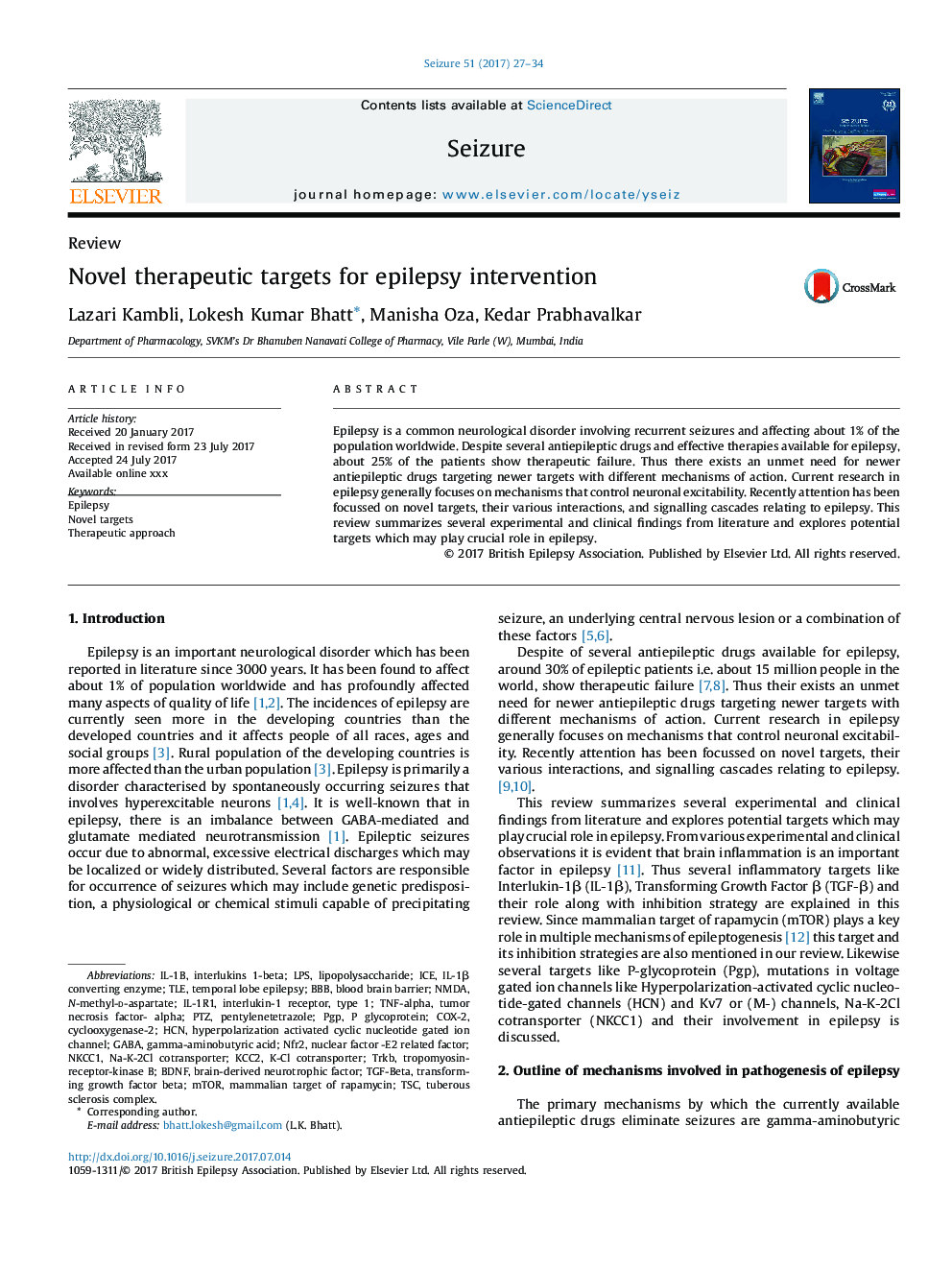| Article ID | Journal | Published Year | Pages | File Type |
|---|---|---|---|---|
| 4935310 | Seizure | 2017 | 8 Pages |
Abstract
Epilepsy is a common neurological disorder involving recurrent seizures and affecting about 1% of the population worldwide. Despite several antiepileptic drugs and effective therapies available for epilepsy, about 25% of the patients show therapeutic failure. Thus there exists an unmet need for newer antiepileptic drugs targeting newer targets with different mechanisms of action. Current research in epilepsy generally focuses on mechanisms that control neuronal excitability. Recently attention has been focussed on novel targets, their various interactions, and signalling cascades relating to epilepsy. This review summarizes several experimental and clinical findings from literature and explores potential targets which may play crucial role in epilepsy.
Keywords
N-methyl-d-aspartateNfr2IL-1β converting enzymeNa-K-2Cl cotransporterP glycoproteinPGPNKCC1IL-1R1TrkBTLEKCC2LPSNMDATSCPTZTNF-alphaCOX-2mTORHCNBDNFIL-1bTGF-betagamma-aminobutyric acidNovel targetsEpilepsyTransforming Growth Factor Betatumor necrosis factor- alphaTherapeutic approachBBBblood brain barrierCyclooxygenase-2temporal lobe epilepsyBrain-derived neurotrophic factorlipopolysaccharidemammalian target of rapamycinPentylenetetrazoleTuberous sclerosis complexGABAIce
Related Topics
Life Sciences
Neuroscience
Behavioral Neuroscience
Authors
Lazari Kambli, Lokesh Kumar Bhatt, Manisha Oza, Kedar Prabhavalkar,
